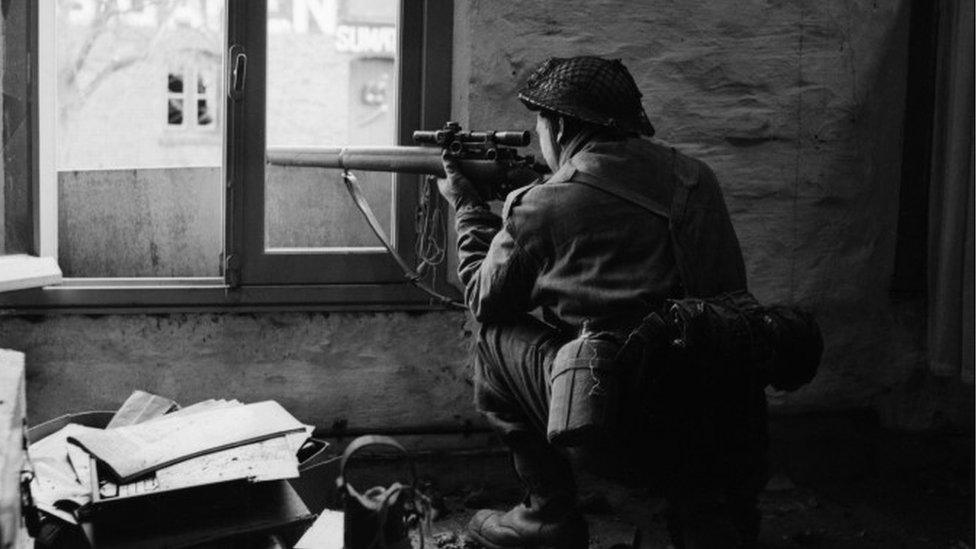'Keep the memory of National Service alive'
- Published
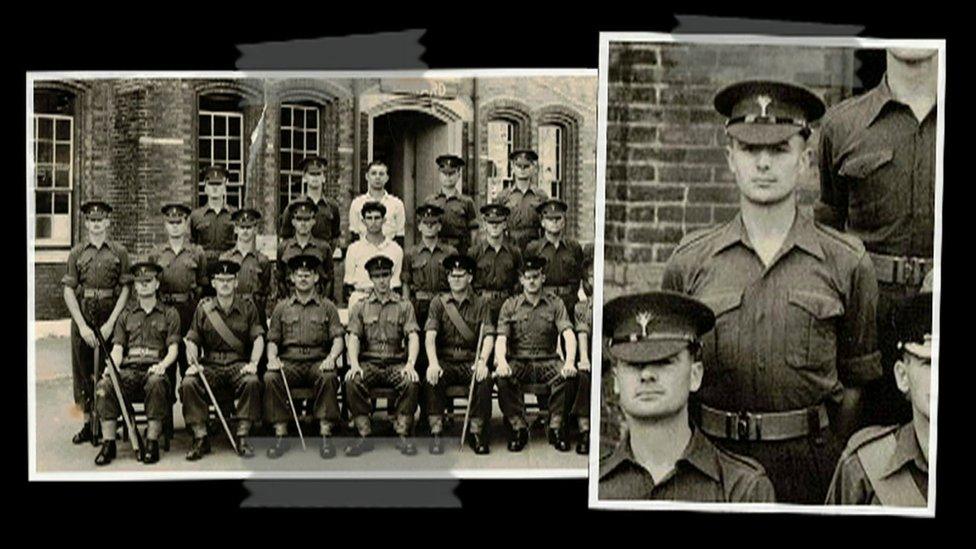
After three months basic training, Elwyn Davies found himself shipped off to Egypt to complete the battle training he should have done in Surrey
For a generation of young men in post-war Britain, National Service - conscription to the armed forces for a period of up to two years - was something they couldn't avoid.
Now, 60 years after the final recruits began their basic training, the stories of some of the two million men who served, have been recorded by a north Wales arts organisation.
In a world facing a potential threat from the Soviet Union, as well as often-violent opposition in countries striving for independence from the British Empire, National Service began in 1949 as a way of meeting the UK's security needs.
Ceridwen Hughes, from Same But Different, the not-for-profit organisation based in Mold, external, has interviewed former conscripts for the National Service Remembered project found themselves in frontline roles.
"People assume that the conscripts were just based in the UK or that they didn't really play an active role but, actually, that's really far from the truth because quite a few did go to countries like Singapore," said Ms Hughes.
"There was the Suez Crisis, Germany and some of them did see active service. They had a breadth of experience."
Elwyn Davies, now 83 and living in Holywell, was one of those called up.
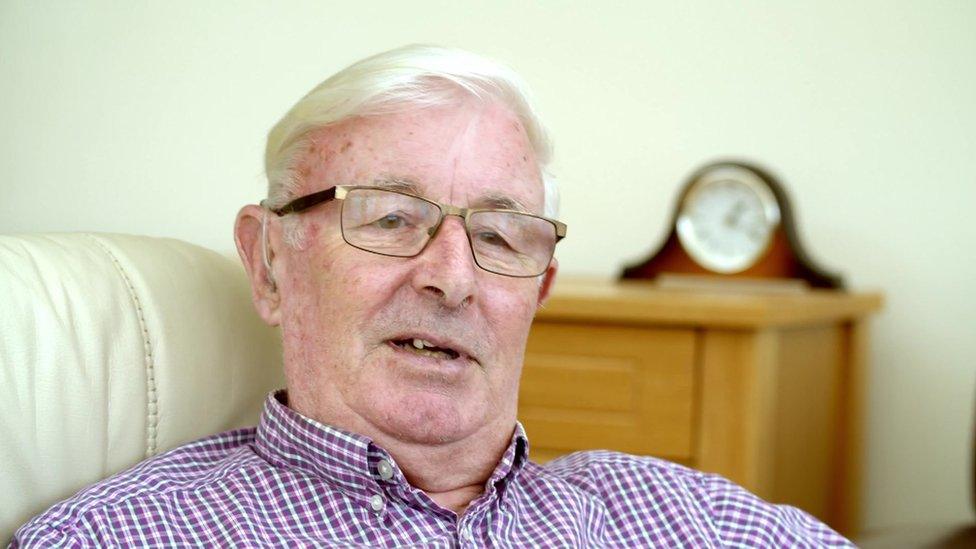
Elwyn Davies - now 83 - said his national service was "tough" but "life-changing"
Back in 1955, he was a young police cadet who grew up in Conwy, and might have been exempted from National Service if his chief constable had made a different decision when his call-up papers arrived.
"'You tell young Davies to go and do his National Service. It will do him more good than staying in Colwyn Bay as a cadet'," recalled Mr Davies, who returned to policing after two years with the Welsh Guards and rose to the rank of superintendent.
Mr Davies, who said he was "a shy little boy from the backwoods", has no regrets about having to go off to the army because "I would have really missed out".
It was a time when British Prime Minister Anthony Eden tried, and failed, to retain British control of the Suez Canal after it had been seized by Egypt forces under President Gamel Nasser.
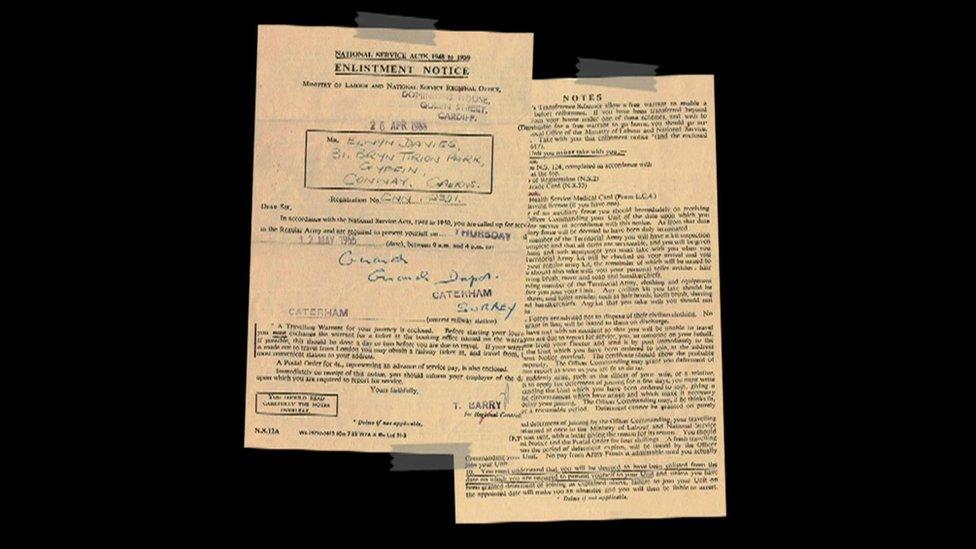
National Service saw young boys be called up for compulsory service for up to two years
And after just three months of basic training, it meant the teenage Mr Davies found himself shipped off to Egypt to complete the battle training he should have done in Surrey.
"They were both culture shocks. First of all, arriving in Caterham from a little Welsh non-conformist background in Conwy and suddenly you... [have] NCOS and sergeants shouting at you from all angles," said Mr Davies.
"And then going abroad to Egypt was again a total shock. The heat. And they didn't let up - you had to do the same sort of thing as you would have done in Pirbright (barracks)."
Although he and his fellow recruits were largely confined to the barracks in Moascar, they did have to guard remote ammunition dumps and were aware of the tension around them when they were allowed out.
"You could sense that there was a lot of hostility towards us," he said.
And while two years of National Service was "a big slice out of your life" it was "a great bonding experience" with the group of 20 he was in.
'Not always positive'
"You had to learn how to get on with them. You had to learn to survive. And I think that stood me in good stead for the police force as well, really, because, again, in the police force, you had to get on with all sorts of people. And I don't think I would have got on as well as I did without that experience," he explained.
Ms Hughes says the men she interviewed mainly talked of the positive impact of conscription, but knew of others who felt differently.
"Some of them were aware of others in their platoons that did have a very difficult time and, in fact, one even knew of someone who had gone to New Zealand to escape being drafted. So, it wasn't always the positive experience," she said.
Mr Davies' service ended with three months at Wellington barracks in London acting as batman (a soldier assigned to a commissioned officer) and with it a chance to live in central London at the army's expense.
He said the two years in the army was "tough", but it was also "life-changing" and he has happily shared his memories.
"It would be a shame if National Service disappeared without people realising what went on," he said.
"In a few years time, there won't be any of us left, will there? And National Service will disappear and it will all be forgotten so I think it's a great idea to keep it alive."
The plan now is to gather more stories from ex-national servicemen with more interviews and filming to do done when the current Covid rules are relaxed.
Related topics
- Published27 June 2018

- Published4 January 2021
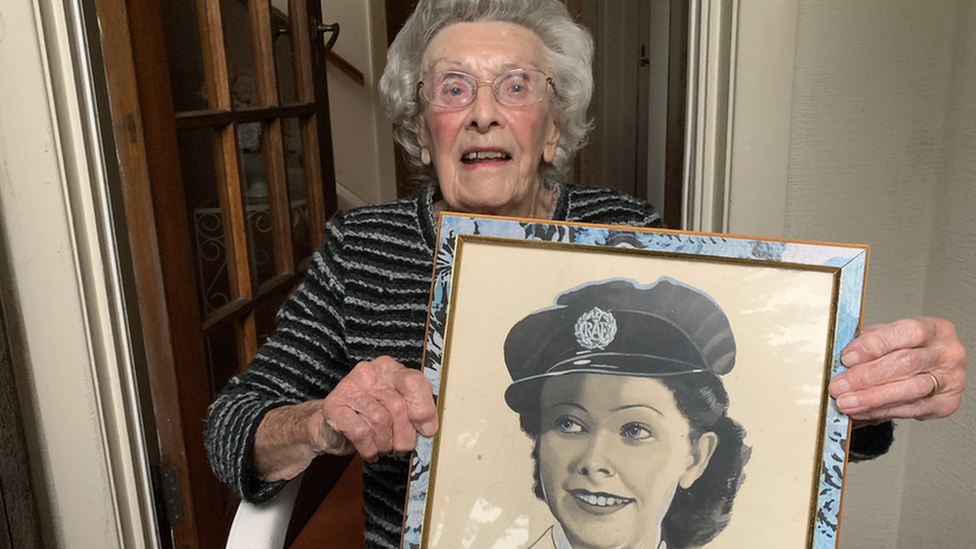
- Published6 June 2020
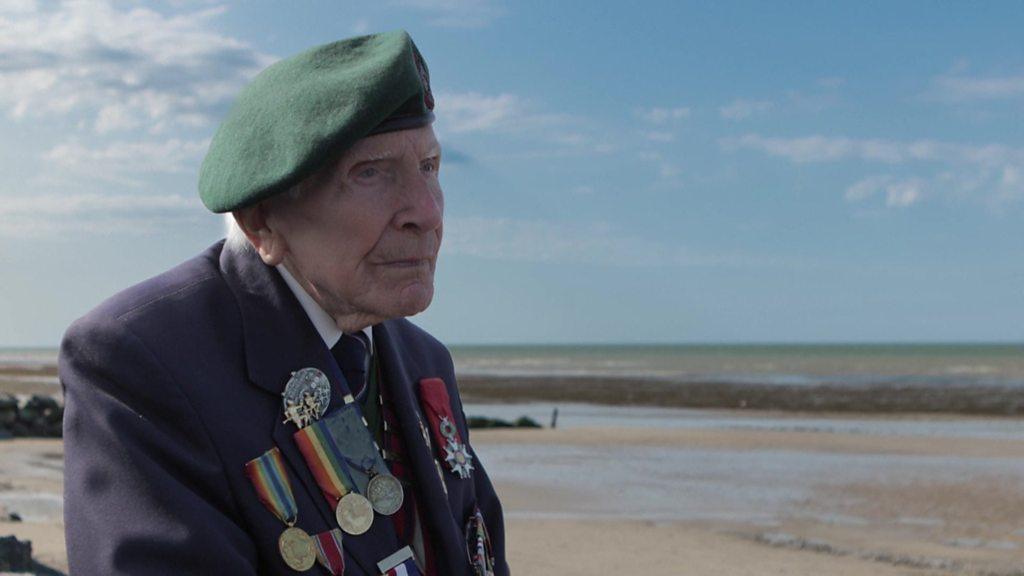
- Published23 November 2020
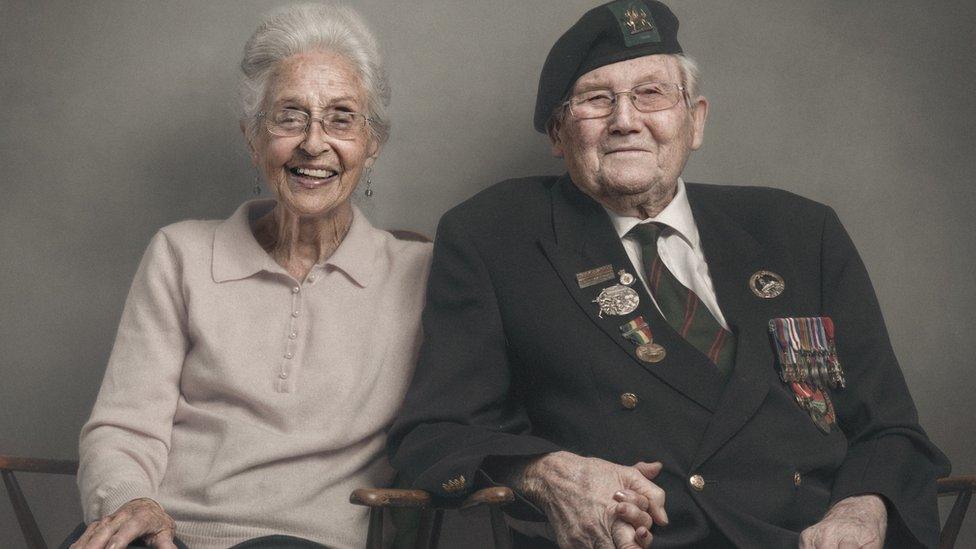
- Published6 June 2019
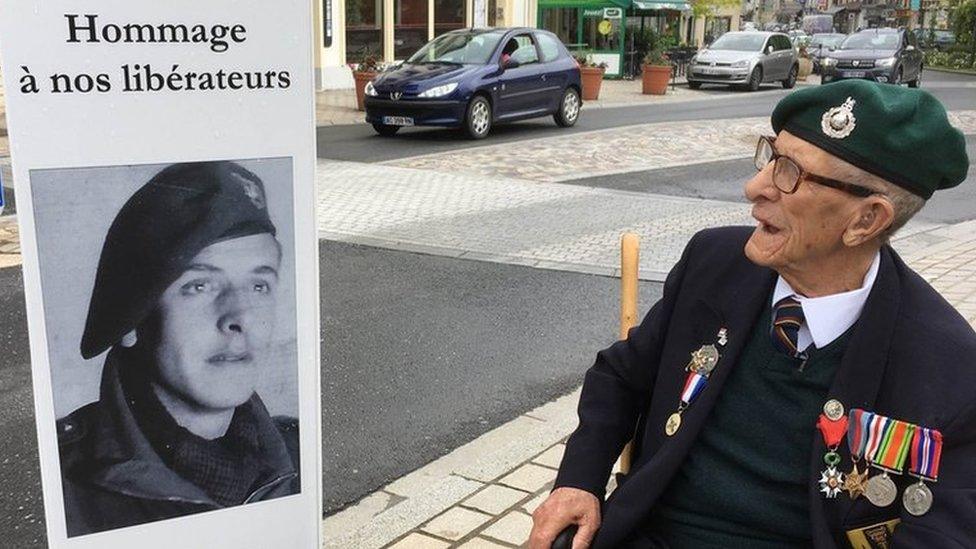
- Published5 October 2019
